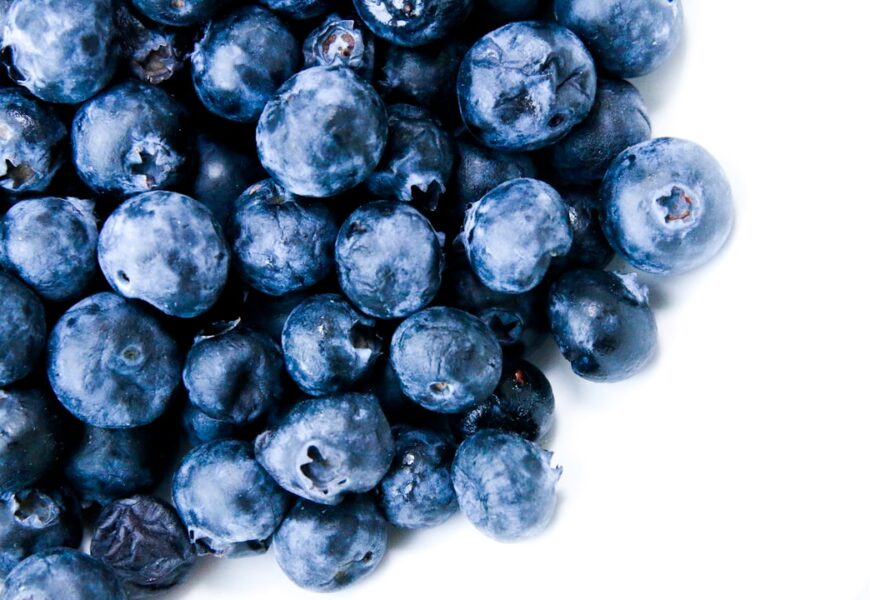The Science Behind Superfoods: How They Benefit Your Health
Introduction
Welcome to the vibrant world of superfoods, where nutrition meets deliciousness! Ever wondered why everyone’s buzzing about the benefits of certain foods labeled as “super”? It’s because these nutritional powerhouses are packed with vitamins, minerals, antioxidants, and other essential nutrients that can significantly boost your health. From kale and quinoa to berries and nuts, superfoods aren’t just trendy—they’re backed by science to help improve your overall well-being. Join us as we dive into the fascinating science behind superfoods and discover how incorporating them into your diet can lead to a healthier life.
What are Superfoods?

Definition and characteristics
Superfoods are not a specific food category but rather a descriptive term for foods that offer maximum nutritional benefits for minimal calories. They are packed with vitamins, minerals, and antioxidants. Unlike ordinary fare, superfoods are reputed to contain higher concentrations of crucial nutrients and, as a result, can confer numerous health advantages such as enhancing brain function, reducing inflammation, and improving immune response. The characteristics that generally set superfoods apart are their exceptionally high content of essential nutrients and their proven health benefits from clinical and observational studies.
Examples of common superfoods
Common superfoods you might already know include berries like blueberries and acai, leafy greens such as kale and spinach, and other nutritious staples like quinoa, almonds, and salmon. Exotic or less commonly known superfoods include chia seeds, goji berries, and maca root, each hailed for specific health-boosting properties. For instance, blueberries are famed for their high levels of flavonoids, while salmon is an excellent source of omega-3 fatty acids, crucial for cardiovascular health.
Nutritional Value of Superfoods
High levels of antioxidants
Antioxidants are substances that help prevent or slow damage to cells caused by free radicals, which are unstable molecules that the body produces as a response to environmental and other pressures. Superfoods are considered an excellent source of antioxidants, with some like goji berries, dark chocolate, and pecans leading the front. They help to combat oxidative stress and lessen the impact of various diseases, such as certain cancers and premature aging. For instance, the high antioxidant content in berries comes from anthocyanins, which give them their vibrant colors and are linked to a lower risk of diabetes, cardiovascular diseases, and cognitive decline.
Abundance of essential vitamins
Superfoods are typically dense in essential vitamins that promote various aspects of health. For instance, citrus fruits and strawberries offer a hefty dose of Vitamin C, critical for immune system function and skin health. Leafy greens like spinach are rich in Vitamin K, vital for bone health and proper blood clotting. Furthermore, the inclusion of superfoods like sweet potatoes and carrots, which are loaded with Vitamin A, helps to enhance vision and immune function. These vitamins are not merely supplementary; they’re fundamental to maintaining energy levels, protecting against infections, and supporting organ functions throughout the body.
Rich in minerals
Beyond vitamins, superfoods also deliver a wealth of minerals essential for bodily functions. Foods such as nuts, seeds, and whole grains are excellent sources of magnesium, which is essential for over 300 biochemical reactions in the body, including muscle and nerve function. Iron, a critical component of hemoglobin, can be sourced from superfoods like lentils and spinach, enhancing oxygen distribution and vitality. Additionally, calcium-rich superfoods such as kale and sardines play a crucial role in bone health and the prevention of osteoporosis. The mineral content in superfoods helps ensure that your body functions optimally, supports metabolic processes, and maintains electrolyte balance in the cells.
How Superfoods Benefit Your Health
Boosting immunity
Superfoods are loaded with vitamins, minerals, and antioxidants that are crucial for strengthening the immune system. Foods like blueberries, turmeric, and spinach are high in vitamin C and other antioxidants, which fight off free radicals in the body, potentially reducing inflammation and boosting immune health. Additionally, superfoods such as garlic and ginger have antiviral and antibacterial properties that can help your body ward off illnesses. Regularly incorporating a variety of these powerful foods into your diet can serve as a natural way to enhance your body’s ability to fight infections.
Improving heart health
The heart benefits immensely from superfoods due to their high concentrations of heart-healthy nutrients. Omega-3 fatty acids, found in abundance in chia seeds and salmon, are known for their role in decreasing the risk of arrhythmias (abnormal heart rhythms), which can lead to heart attacks. Foods like oats and barley, which are high in dietary fiber, can help reduce the level of bad cholesterol (LDL) in the blood and improve overall heart health. Moreover, nuts like almonds and walnuts are great sources of vitamin E, which helps prevent plaque development in your arteries, thus preventing heart disease.
Enhancing cognitive function
Certain superfoods are celebrated not just for their physical health benefits but also for their positive impact on cognitive function. Foods rich in antioxidants, such and dark chocolate and berries, can help protect neurons from damage, potentially reducing the risk of memory loss and cognitive decline associated with aging. Omega-3 fatty acids, which can also be found in flaxseeds and walnuts, support brain health by improving the fluidity of cell membranes and promoting new neuronal growth. Regular consumption of these nutrient-dense foods can contribute to sharper memory, better problem-solving skills, and overall brain health.
Incorporating Superfoods into Your Amp;line;iet
Tips for including superfoods in your meals
Integrating superfoods into your diet can be simple and delicious. Here are some tips to help you start:
– Begin by adding a handful of spinach or kale to your smoothies for an easy nutrient boost.
– Swap out white rice for quinoa, which is high in protein and fiber, in your next dinner recipe.
– Snack on a mix of nuts and seeds instead of chips to reduce your intake of unhealthy fats.
– Use avocado as a healthy fat in sandwiches or salads, instead of mayonnaise or other processed options.
By making these small adjustments, you can significantly increase the nutritional value of your meals without compromising on taste.
Recipes featuring superfoods
To make the incorporation of superfoods into your diet even easier, here are a couple of simple recipes:
– Blueberry and Spinard Mik Shellf:blend a cup of fresh blueberries, a handful of spinach, one banana, and a cup of almond milk. This smoothie is not only refreshing but also packed with antioxidants and vitamins.
– Quinoa Salad with Roasted Sweet Potatoes: Toss cooked quinoa with roasted sweet potatoes, avocado, pumpkin seeds, and a lemon-tahini dressing for a hearty and healthy meal.
These recipes demonstrate that eating well does not have to be complicated or bland; superfoods can easily be incorporated into tasty and nourishing dishes.
Superfood supplements
For those who find it difficult to incorporate a variety of superfoods into their diet, supplements can be a convenient alternative. Green powder mixes that contain dried and powdered forms of superfoods like spirulina, wheatgrass, and barley grass are available and can easily be added to water, juice, or smoothies. However, it’s important to remember that supplements should not replace a balanced diet but rather should be used to complement it. Always consult with a healthcare provider before starting any new supplement regimen to ensure it is appropriate for your health needs.
The Role of Superfoods in Preventing Chronic Diseases

Fighting inflammation
Inflammation is a natural process that helps the body heal and defend itself from harm. However, chronic inflammation can lead to various health issues, including heart disease, diabetes, and arthritis. Superfoods are packed with antioxidants and anti-inflammatory compounds that help reduce chronic inflammation and restore balance to the body’s systems. Foods like blueberries, turmeric, and leafy greens contain substances such as quercetin and curcumin, which have been shown to effectively reduce inflammation markers in the blood.
Reducing the risk of cancer
Superfoods contain high levels of antioxidants, which play a crucial role in cancer prevention. Antioxidants neutralize harmful free radicals in the body that can lead to cell damage and cancer growth. For example, the antioxidants found in broccoli, such as sulforaphane, have been extensively studied for their cancer-fighting abilities. Similarly, tomatoes are rich in lycopene, a powerful antioxidant that has been linked to a reduced risk of prostate cancer. Regular consumption of these nutrient-dense foods can significantly contribute to reducing the risk of developing various types of cancer.
Managing weight and metabolism
Superfoods are not only rich in nutrients but also very effective in managing weight and boosting metabolism. These foods are typically high in fiber and protein, which can help you feel fuller longer and reduce overall calorie intake. For instance, chia seeds and oats are excellent sources of soluble fiber that aid in weight management by delaying stomach emptying and increasing satiety. Furthermore, the metabolic boost from ingredients like green tea and whole grains can increase calorie burn and support weight loss. Incorporating superfoods into your diet can be a delicious and natural way to maintain a healthy weight and metabolism.
Conclusion
Superfoods, with their dense nutritional profiles, are more than just a trend—they are a pathway to enriching our overall health and well-being. By incorporating a variety of these nutrient-rich foods into our diets, we stand a better chance of fighting off illnesses, enhancing our mental clarity, and boosting our energy levels. Remember, balance is key in any diet, and it’s important to consume superfoods as part of a well-rounded nutritional plan. Embrace these powerhouse ingredients, and make your path to health both delicious and nourishing.










